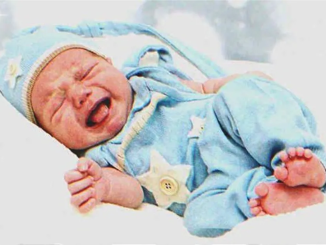Brenda Lee’s name may not be as recognizable as some of the other music stars from the 1960s but when you think of Christmas, you’ll know her song, and start humming her catchy tune, “Rockin’ Around the Christmas Tree.”
When Lee, now 78, first hit the stage, she wasn’t old enough to drive but her powerful vocals steered her “unprecedented international popularity” as the most successful female artist of the 1960s.
Lee, whose voice defied her diminutive stature at only 4 foot 9, became a fan favorite when she was only 12.
Brenda May Tarpley, born in 1944, got her start in the late 1940s, became huge in the 1950s, and over her career–that started before she left elementary school–she topped the charts 55 times, earning the title as the most successful female recording artist of the 1960s.
When Lee was only eight (according to Rolling Stone), her father, a construction worker, was killed at work and little Brenda–who then changed her last name to Lee–became the family’s primary provider.

Taking care of her younger brother, big sister, and mother–a cotton mill worker–was not a duty, but something she wanted to do. She said that she was thrilled when she made her first $20, so she could help her family: “Even at that young age, I saw that helped our life,” Lee said, adding “It put some food on the table. It helped, and I loved it.”
The Atlanta-born chanteuse, called a “pioneer of early rock and roll,” by the Georgia Encyclopedia, achieved “unprecedented international popularity in the 1960s.”
But, an incredibly humble human, Lee credits those who helped her achieve her dreams. When Christianity Today asked what she thinks about being a legend, Lee said “I don’t think of myself that way!” She continued, “I’m just a girl who’s been blessed to be doing what I’m doing, and there’s a lot of people who’ve sweated a lot of tears and put a lot of life’s work into me to be able to have my dream. So, if I’m a legend, then they’re legends, too.”
In 1956, the young girl joined country star Red Foley for a show at the Bell Auditorium near her home in Augusta, and she belted out “Jambalaya,” by Hank Williams.

She was then signed to appear on Foley’s Ozark Jubilee, a country music show, where millions of viewers fell in love with the sassy 12-year-old whose talent was developed well beyond her age.
In the same year, Lee signed with Decca Records, and the next year, she moved to Nashville, Tennessee, and fusing country with rhythm and blues–highlighted by her hiccupping vocals–she recorded early rockabilly classics like “BIGELOW 6-200,” “Little Jonah,” and “Let’s Jump the Broomstick.”
When asked if–when as a young girl–she was nervous performing in front of large crowds, she answered: “No, not really. Nobody ever told me to be nervous. The stage always felt like a hometown to me because I had been in front of people ever since I was 3 years old, singing to people. So it was a very comfortable spot for me.”
In 1957, Lee earned the nickname “Little Miss Dynamite” for her pint-sized powerhouse recording of the song “Dynamite,” and in 1958, fans heard “Rockin’ around the Christmas Tree,” a genre and generation-crossing holiday standard, released when she was only 13.
“I knew it was magical,” she told Rolling Stone.
Over the next couple of years, she charted with hits like “Sweet Nuthin’s,” “All Alone Am I,” and “Fool #1.”
Most of her songs, however, contradicted her experience as a young girl. Her mother didn’t let her date and she graduated high school not understanding the heartbreak of young love.

She was only 16 when she said “Love could be so cruel” in the song “I’m Sorry” and only 16 when she said “I want his lips to kiss me” in the song “I Want to be Wanted,” both back-to-back hits when she was still in school.
And when she turned 18, she met Ronnie Shacklett, whom she’s now been happily married to for 60 years.
Life on the road for Lee as a youngster had its difficulties. She celebrated her 12th birthday in Las Vegas and speaking with the Las Vegas Journal, Lee explained her loneliness.
“Of course, I wasn’t even allowed to walk through a casino, I was so young. So I didn’t even know what a casino looked like. They took me into the kitchen, then into the showroom. And then when my show was over, I was brought back out through the kitchen and back up to my room. Children weren’t allowed … in the casino area.” She continued, “There wasn’t anything to do in Vegas for a kid. The most fun I had was on the stage.”
Speaking on what she missed out on as a child, the award-winning Lee said, “Many times, I yearned to be with my friends rather than be out there on the road.”
Turns out she made new friends on the road, like with the music group that opened for her at a 1962 show in Germany. “I hung out with John,” she says effortlessly, speaking of John Lennon. “He was extremely intelligent, very acerbic with his jokes, just a gentle person. When I found out that they later said they were fans of my music, I was just floored.”

The Scene Where Archie Bunker Defends The National Anthem Is Going Viral 50 Years Later

Archie Bunker most certainly was a memorable television character. For years, he appeared as a star of “All in the Family” and struck a chord with millions of Americans who felt they could relate to Bunker’s views on being an American.The show described Bunker as a hard-working American man who previously served in the armed forces, which explains why he was unwilling to stand by and let another man belittle the Star-Spangled Banner and be disrespectful toward it and all it stood for.
Bunker loved being patriotic and never worried about his political incorrectness. Although some of his comments have not aged well considering the “woke” revolution overtaking America these days, Bunker’s stance in favor of the national anthem continues to speak to millions of Americans who continue to put their pride in America before all else.During this clip, Bunker was watching television with his son-in-law, Meathead. While the national anthem was being played ahead of a sports event, Meathead complained about the anthem and said that it was not a very good song because it glorified the horrors of war.
Although modern-day critics of the national anthem claim it is racist against Black, brown, and indigenous people of color, Meathead was taking a stance against the anthem because it was written during the War of 1812 between the fledgling United States of America and Great Britain.
While Meathead shared his criticism of the anthem, Archie Bunker quickly came to its defense.
“That is one terrible song,” Meathead complains to his father-in-law. Bunker cannot believe his ears and lets his son-in-law know as much. He turns his gaze to Meathead with his eyes popping out of his head in shock at what he just heard come out of his son-in-law’s mouth.Don’t start up nothing with me, Meathead. I’m watching the game. That’s a beautiful song, and shut your face.” Bunker’s blunt attack gets Meathead riled up. He shifts in his chair and prepares to counter Bunker’s statement with one of his own invention.
“Huh? The song glorifies war, and even as a song, it stinks. Nobody can remember the words.”
“You’re going to ruin this game for me?” Bunker lashed back.
“Can you remember the words?”
“Certainly I can!” Bunker shouts.
Meathead then challenges the patriotic Archie Bunker to sing the first few lines of the national anthem. What happens next will have you rolling on the floor with laughter. Meathead doubles down and refuses to put the game back on until Bunker recites the words of the anthem. Although he recites his lines with gusto, Meathead is the one who gets the pleasure of telling Bunker he is “wrong!” Dozens of people commented on this delightfully funny clip from All in the Family on the YouTube video included below.
“Talk about picking battles. Mike just couldn’t shut up and let Archie enjoy his football game, including the national anthem. Go, Archie!”



Leave a Reply